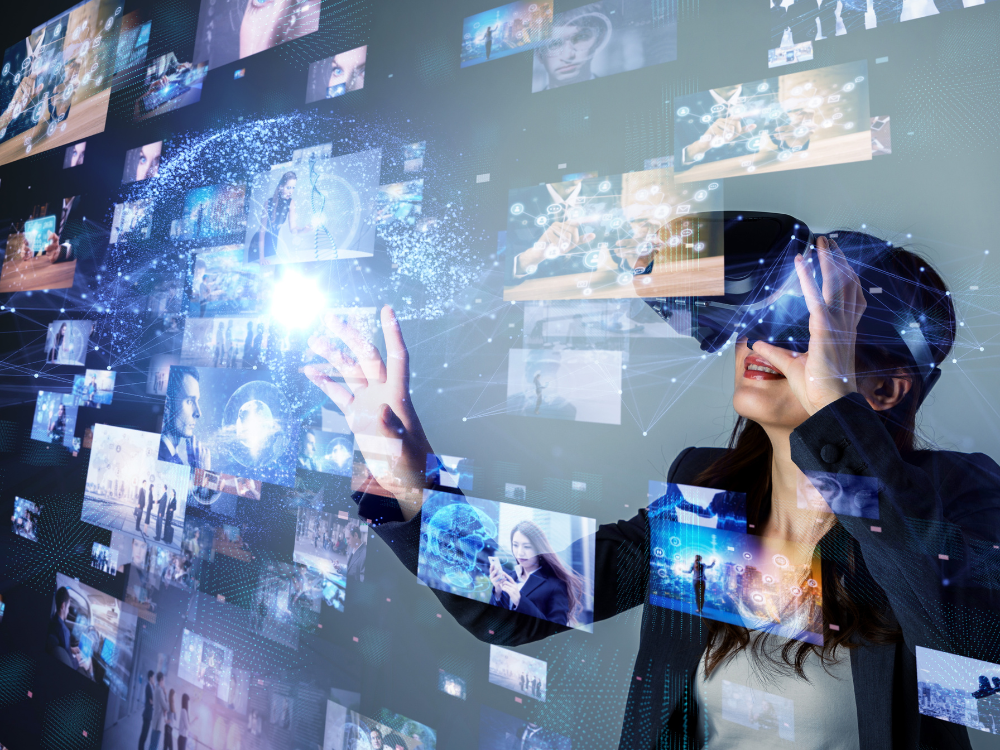You may often listen to the future of virtual reality in education. Virtual reality is a computer-generated environment with scenes and things that seem real, immersing the user in their surroundings.

You might also surprise, what is the future of virtual reality in education?
Education is a basic human need at every age; civilised societies cannot be raised without education. Education is important regarding the development of every behaviour of humans, whether it is moral, social or learning tendency.
It plays its role in enhancing human resources, increasing productivity and improving economic output. However, the use of technology remains less in the field of education till days.
From now onward, the role of virtual reality is very much ensured in future. COVID-19 began when many countries allowed educational institutes to teach their students online. The United Nations Educational, Scientific and Cultural Organization (UNESCO) also supports the education sector with digital tools around the globe.
Have virtual reality will ever play a role in education? The answer is yes! We have seen many things in science fiction movies that have become science facts.
So, virtual reality in education holds a bright future.
Virtual Reality (VR) Advantages in Education
There are several advantages to virtual reality (VR) in learning!
Learning Effectively with Safety
Foremost, the learners can easily learn about any subject of their choice in the comfort and safety of the classroom. VR immerses learners in the virtual world, allowing them to learn effectively and confidently.
Motivational Learning through VR
Besides this, there are other ways to manipulate virtual reality in eLearning, and these activities are more like fun games than routine schoolwork, making learning entertainment. Thus, motivate the students to learn excitingly.
Easy to remember
It is scientifically proven; an average person can easily recall 90% of those experiences through virtual reality.
Virtual Reality Disadvantages in Education
Like many other technologies, virtual reality also has good and bad aspects.
Health Issues

Unfortunately, some people have complained about health issues, such as eye strain, headaches, nausea, and dizziness, by using virtual reality.
Expensive
VR equipment is expensive, and everyone needs access to this facility.
Role of Virtual Reality in Education Today
The role of virtual reality cannot be denied today as it’s changing the traditional scope of education. Virtual reality urges the student’s curiosity to learn more and also develop creative learning capability.
VR is an influential tool already being used in the medical field in which students use VR to study human organs, physiology and anatomy to perform virtual surgeries. Ophthalmologists who are yet to study the anatomy of the eye can also find VR very useful.
Architects can design architectural wonders and then view their great work in real-time.
The Future of Virtual Reality in Education
The upcoming time is not far when virtual reality shows wonders in education and other fields. It is spreading very fast worldwide. Especially in education, it occupies much space, making many study phenomena extremely easy to understand.
Students are very energetic and keen to learn through virtual reality VR.
“Adventurous School Tour”
Teachers, along with their students, can go on tour to those places of the world where they can imagine. Either tour is for entertainment or study purpose. It’s not more than an adventure.
Nowadays, the fiction of science truly becomes a fact of science.
“VR Classrooms”
Teaching in online and virtual classrooms is already practised. If students could take VR classes with more attention using VR headsets, it would be better for the future of virtual reality in education.
“Flight Simulators”
Pilots, Astronauts have been learning through VR simulators during their training. The future of VR may include advanced simulators in school classrooms.
VR scientific labs for biology, physics and chemistry experiment will be marvellous educational achievements.
The future of virtual reality is bright. It is useful for students to enlighten their future and the best option for the teachers to express their teaching capabilities through it. So, in the future virtual reality technology will be used to develop simulations of real-world scenarios, allowing students to exercise skills in a safe and controlled environment in education.

